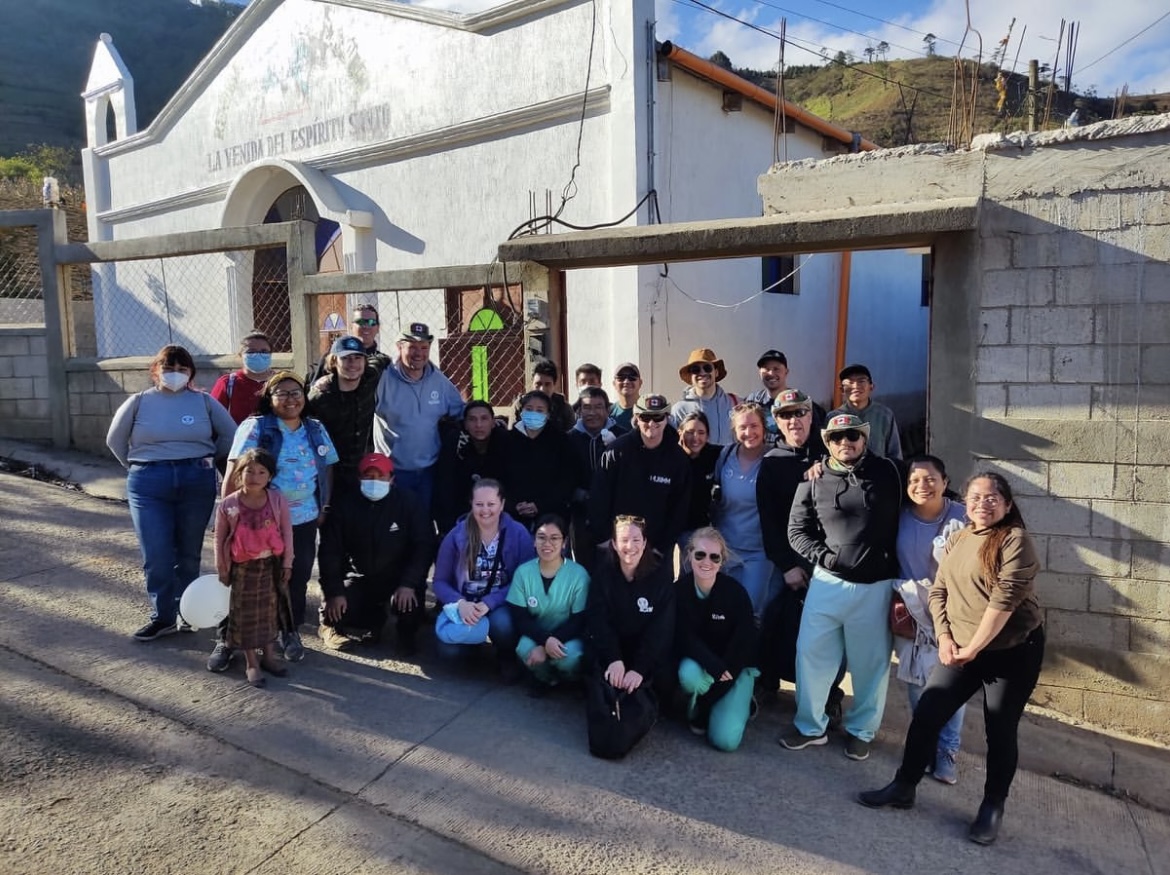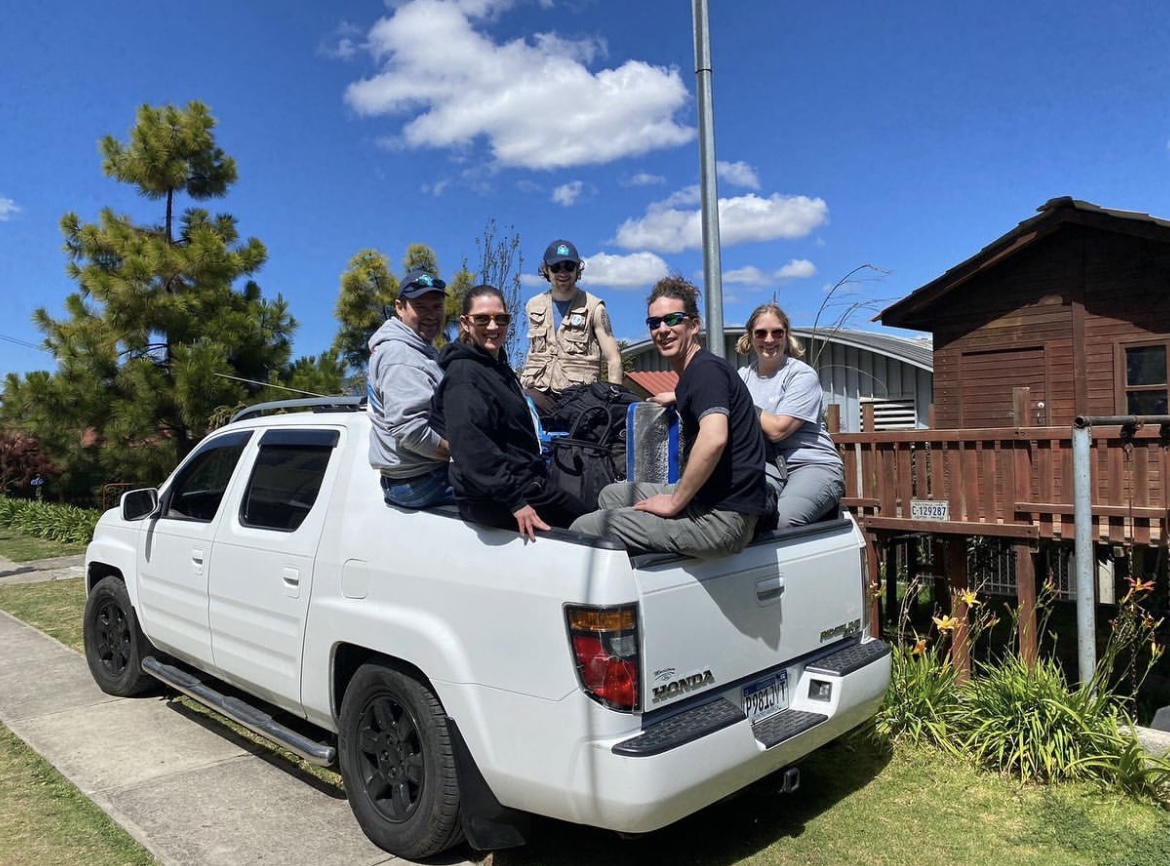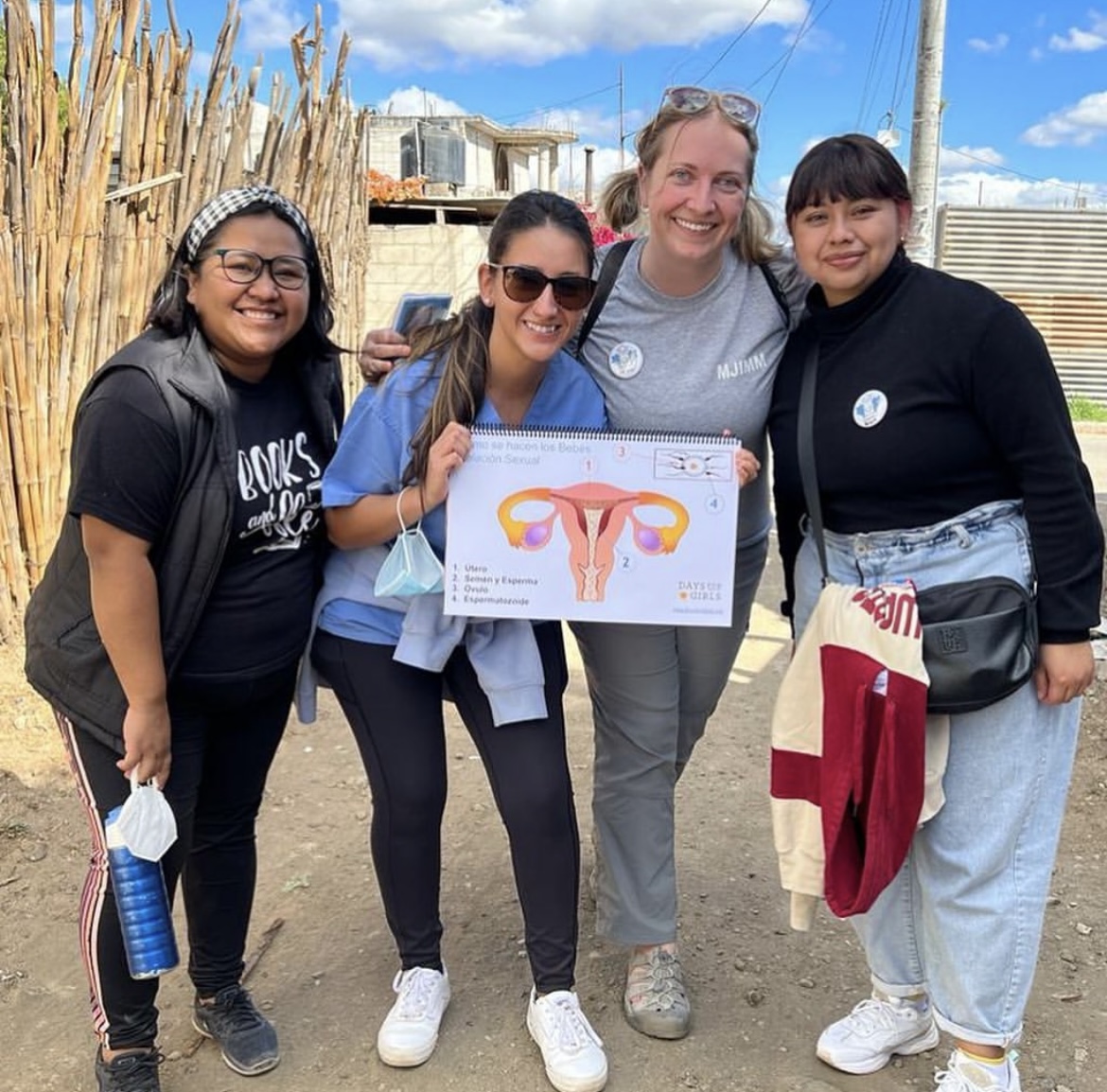Moose Jaw residents gain international medical experience
Residents join Moose Jaw International Medical Mission to Guatemala
By Moose Jaw Family Medicine ResidentMoose Jaw International Medical Mission is a team of doctors and nurses who volunteer their skills in Patzun, Guatemala. The following article is a first person account of this unique experience.
This winter, I along with a couple of other Canadian family medicine residents had to opportunity to spend elective time on a medical mission in Guatemala.
This elective was done in partnership with the Moose Jaw International Medical Mission, an annual multidisciplinary team that travels to the rural community of Patzun to provide both medical and non-medical services. We partnered with the local community hospital of Corpus Christi and helped organize and direct our efforts to where it was needed the most.
In this region of Guatemala, access to healthcare was quite limited, both geographically and infrastructurally.

The volunteer group was comprised of three separate teams that provided services in and around Patzun, Guatemala. There was the surgery team comprised of both surgeons, anesthetists, nurses and technicians who performed marathon-long days of back-to-back surgery, providing life-changing procedures that would have otherwise been unavailable for many patients.
There was also the stove team, who installed stoves with proper ventilation in the dwellings of many of the locals, where frequently cooking was primarily done over open flames in closed spaces, with poor ventilation and air quality, causing any exacerbating respiratory conditions. Their laborious effort allowed for the improvement in air quality in the local’s dwellings.
The third team was the medical team, which I was apart of, along with other physicians and nurses. Our task was to travel to nearby villages in order to set up daily clinics and bring access to medical care to the local inhabitants. On our first morning in Patzun, we awoke well before sunrise, and in the dark, we could see the glowing lava on the nearby active volcano of Fuego.

Many of the villages were located high up in the nearby mountains, and that day the truck that was carrying us and our supplies was unable to make it up the steep incline. We were forced to push the truck up the hill, and the effort coupled with the thin atmosphere at the elevation left many of the medical team, myself included, feeling quite dyspneic. Fortunately, we survived to make it to the village to set up our first clinic, albeit red-faced and wheezing.
Our clinic would be set up wherever the villages could find to put us, whether in the hall of an ancient church, using the pews as exam tables, or in the open courtyard, continuously shifting our tables and chairs to stay within the evolving shade as the hot sun passed over the sky. As our clinic set up, it wasn’t too long before queues began to form.
People from all over the village would come, as well as the laborers from the nearby terraced plots of farmland, eager to see members of the medical team, just as we were eager to get started and provide what help we were able to. However, nothing would have been able to be done if were not the phenomenal effort and insight that our translators provided, helping us navigate our patient encounters not just through translation in Spanish, but also in the local Indigenous language of Kaqchikel, which was prevalent in that region of Guatemala.
As was to be expected there was certainly an adjustment period at the start for those of us who had not previously joined these trips, but soon, despite the cultural and language barrier, the familiar pattern of primary care began to emerge.
As it was back home, patients would come with a number of presenting complaints, and we in turn would provide reassurance and education when required, and therapies and medications when indicated.
Many of my encounters with patients evolved into conversations about their lives, as I eagerly listened to them tell me about their lives and their families, and in turn shared with them about my own life.
There were certainly challenges that presented themselves along the way, challenges we don’t commonly face in Canada.
We were limited in both the variety and quantity of medications, all that was available was stored in several bins we brought directly with us. There were no pharmacies available to send prescriptions to. There was a great need to be adaptable in forming management plans with the resources available to us, with the preferred treatment not always available.
Additionally, we always had to keep in mind the equity of resources, knowing our supplies were limited, we always had to keep in the back of our minds how much to dispense versus what would be available for the next patient, the next village.
We also did not have the luxury of follow-up reliable referrals as many of our patients had not seen a physician or accessed health care for years, if at all, and there was no way of knowing when the next opportunity would arise. This trip highlighted the critical importance of consistent access to healthcare and physician care. This was made witnessing an unfortunate cycle in which untreated diseases progressed to more severe stages, and patients lacked reliable access to medical care to address these issues.

Witnessing this contrast between the state of healthcare access in Guatemala to Canada, left with me an impression of deep gratitude for the healthcare system I can work within and also benefit from.
While our healthcare system is currently facing many challenges, especially regarding access to primary care, I feel it is still important to acknowledge that in a global context, we are quite fortunate with the healthcare system we are in, and how vital it is that we preserve it.
Overall, I feel incredibly fortunate to have had the opportunity to participate, and this experience was one that I will carry with me throughout the rest of my medical career. I think it was a valuable learning opportunity for any resident, especially for those who want to experience medicine in resource-limited areas and learn about practicing medicine in a different cultural context. If this is an opportunity other residents or physicians would like to participate in, the Moose Jaw International Medical Mission is always looking for more participants, regardless of where in Canada they practice.

